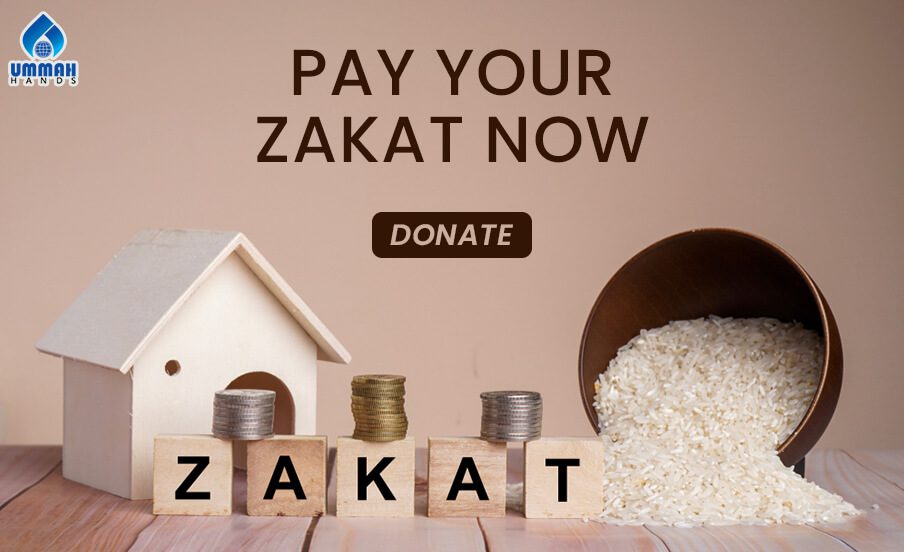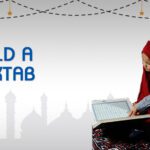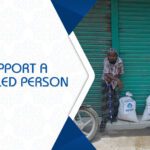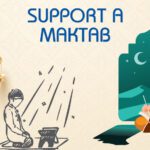100% Zakat Policy
For 10 Wonderful Years, we at Ummah Hands are delighted to have had – and remain to have – a 100% Zakat procedure!
This means every single penny of your Zakat/Zakah payment will go straight to those who are eligible to receive Zakat 100% – granting you 100% of the reward.
Ummah Hands utilises zakat to help the needy and destitute communities. Your donations bring ease to these people, and brings hope.
By paying your Zakat through Ummah Hands you can be assured you’re making a genuine transformation for Muslims right here in the UK and abroad.
Find out more about Ummah Hands’ Zakat applicable projects and give 100% of your Zakat to those in desperate need.
- Zakat for Islamic Education
- Zakat for Orphans
- Zakat for Widows
- Zakat for Destitutes
- Zakat for Needy
- Zakat for Students
Your Zakat has the power
- Providing Islamic education and training to support Muslims who can better serve the Ummah wherever they may be.
- Stand as a protecting guard for Muslims in need.
- Releasing those in dire need from their urgent financial problems.
- Serving the Ummah with necessities such as shelter, clothing, food and travel expenses
Donate Now
Zakat is one of the pillars of Islam and it has the potential to ease the suffering of the ummah.
“And establish prayer and give Zakat, and whatever good you put forward for yourselves – you will find it with Allah.” (2:110, Qur’an)
Your Zakat donations are handled with the greatest of care to ensure they reach eligible recipients quickly and securely.
The Impact of Your Zakat Donation
The majority of the work that Ummah Hands do is Zakat eligible. We carry out various projects, distributing food and water, improving healthcare provisions, allowing greater access to education and supporting some of the most disadvantaged communities. With nearly a decades of experience helping the most vulnerable, we continually strive to push ourselves and create a fairer, safer world that empowers those we help. When you give Zakat, you are supporting this vision.
Zakat in Islam
What is Zakat?
The literal meaning of the word being ‘to cleanse,’ zakat purifies, increases and blesses the remainder of wealth.
“Whoever pays the zakat on his wealth will have its evil removed from him” (Ibn Khuzaimah and at-Tabarani).
Zakat is also a spiritual connection to one’s maker – to purify your wealth for the will of Allah is to acknowledge that everything we own belongs to Him, and it is for Him that we strive to end poverty and help our brothers and sisters.
Who should pay Zakat?
According to the Hanafi madhab, zakat is 2.5% of wealth that has been in one’s possession for a lunar year. If wealth amounts to less than a threshold figure, termed the nisab, then no zakat is payable. If wealth amounts to more than the nisab, zakat becomes obligatory.
Nisab
Nisab is the minimum value of total wealth one must possess in order to pay Zakat. It is defined as the value of 87.5g of pure gold or 625g of silver. Most scholars favour the lower value as it means that more people can pay Zakat and therefore there are more beneficiaries.
To find out if you are eligible, use our Zakat Calculator
Who do we support with your Zakat?
“Of their goods, take zakat, so that you might purify and sanctify them.” (9:103, Qur’an)
Zakat On Business
Raw materials and goods produced for sale are also subject to zakat. The buildings, machinery, vehicles and so on that are essential for the business are exempt from zakat.
To find out if you are eligible, use our Zakat Calculator or Call us.
Who are the recipients of Zakah?
When donating your Zakat through Ummah Hands you can be certain that it will be spent to empower and support some of the most underprivileged people in the globe.
The recipients of Zakat
There are eight types of people to whom Zakat can be distributed. These have been selected by the sharia as:
1) The Poor
This refers to those who do not own any Zakatable asset nor surplus asset which equates to the Nisab.
Donate Now2) The Needy (Al-Masakin)
The needy are the people whose earnings do not cover their basic needs. According to some scholars, they are those whose economic status is worse than the needy. In essence, they refer to those people who do not own any Zakatable asset nor surplus which equates to the Nisab.
3) Administrators of Zakat (Al-‘Amilina ‘Alayha)
Donate Now4) Reconciliation of Hearts (Al-Mu’allafate-Qulubuhum)
This term refers to people who have embraced Islam or who are inclined to it.
5) For those in Bondage (Fir-Riqab)
Zakat may be allocated to help Muslims free themselves of bondage / slavery.
Donate Now6) Those in Debt (Al-Gharimin)
Zakat maybe given to those in debt. Those individuals whose liabilities exceed their Zakatable and surplus assets can receive Zakat to pay off debt.
7) In the Cause of Allah (Fi-Sabilillah)
Muslim jurists differ on who or what can be covered under this category, although most seem to agree that it can be used in the defence of Islam. In the wider sense however, this channel covers promoting the Islamic value system.
8): The Wayfarer (Ibn As-Sabil)
A wayfarer refers to a traveller who left his home for a lawful purpose and for whatever good reason does not possess enough money to return home, even if he is rich in his own country.
Should recipients be told it is Zakat?
If you give your Zakat directly to the recipient, you do not have to tell them that it is Zakat – this may cause them to be hesitant in accepting it due to the fact that they feel they are not needy enough to accept it / doubt their eligibility as a Zakat recipient – this is sometimes caused by the lack of education on Zakat.
Do not delay, pay your zakat now!
Donate Now
Donation Hotline:


















